

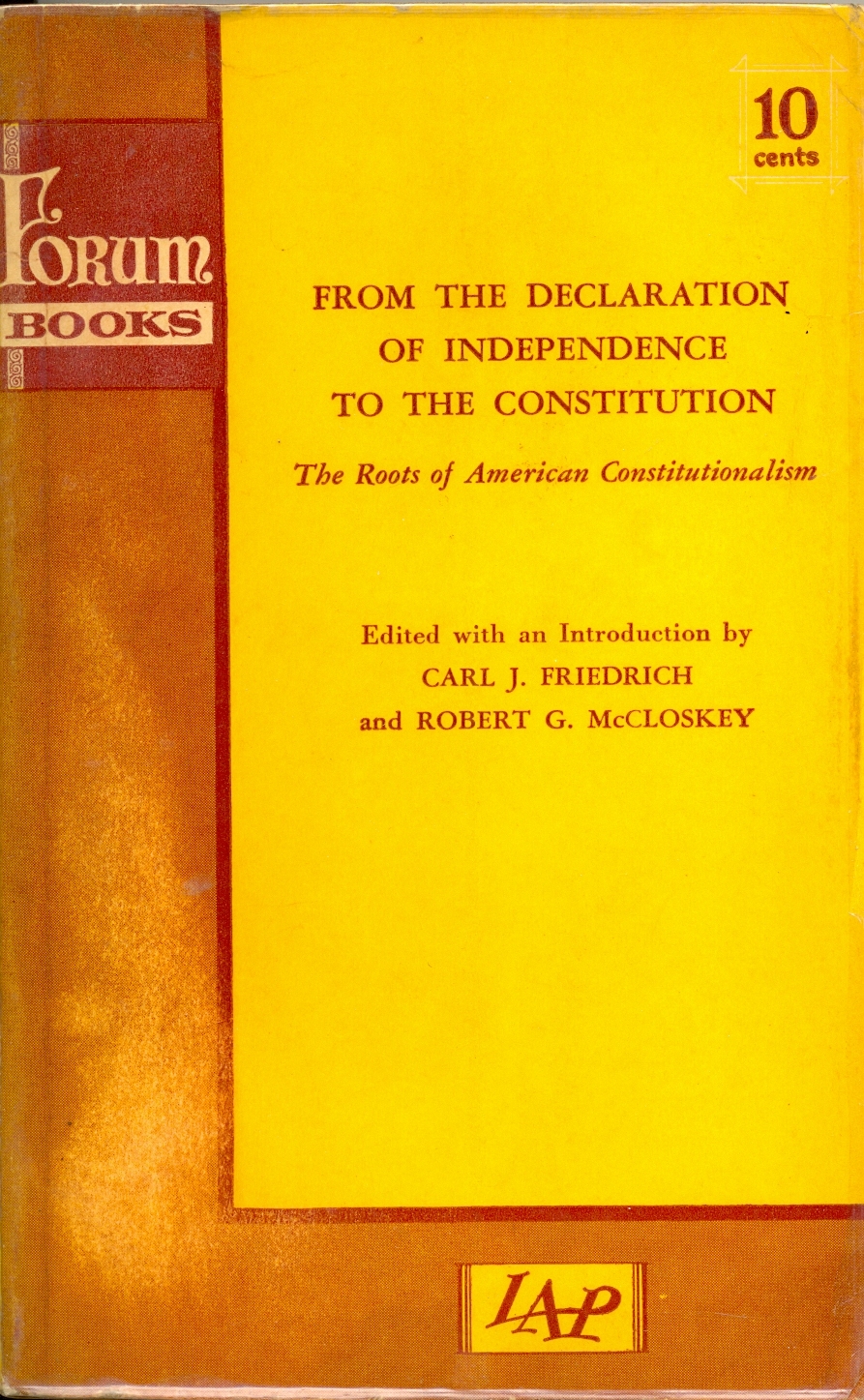
Books in series

Social Theories of Jacksonian Democracy
Representative Writings of the Period 1825-1850
2003

Common Sense and Other Political Writing
1953

From the Declaration of Independence to the Constitution
1954

The Forging of American Socialism
1953
Late Nineteenth-Century American Liberalism
Representative Selections, 1880-1900
1962

Theories of education in early America, 1655-1819
1973

Puritan Political Ideas, 1558-1794
1965

The Great Awakening
Documents Illustrating the Crisis and Its Consequences
1967

The Antifederalists
1966

Mind of the Founder
Sources of the Political Thought of James Madison
1972

Freedom of the Press from Zenger to Jefferson
Reprint with new introduction and updated bibliography
1966
The Antislavery Argument
1965
The Political Thought of Abraham Lincoln
1967
Radical Republicans and Reconstruction, 1861-1870
1967
Manifest Destiny
1968

Social and Political Thought of American Progressivism
2006

The Populist Mind
1967
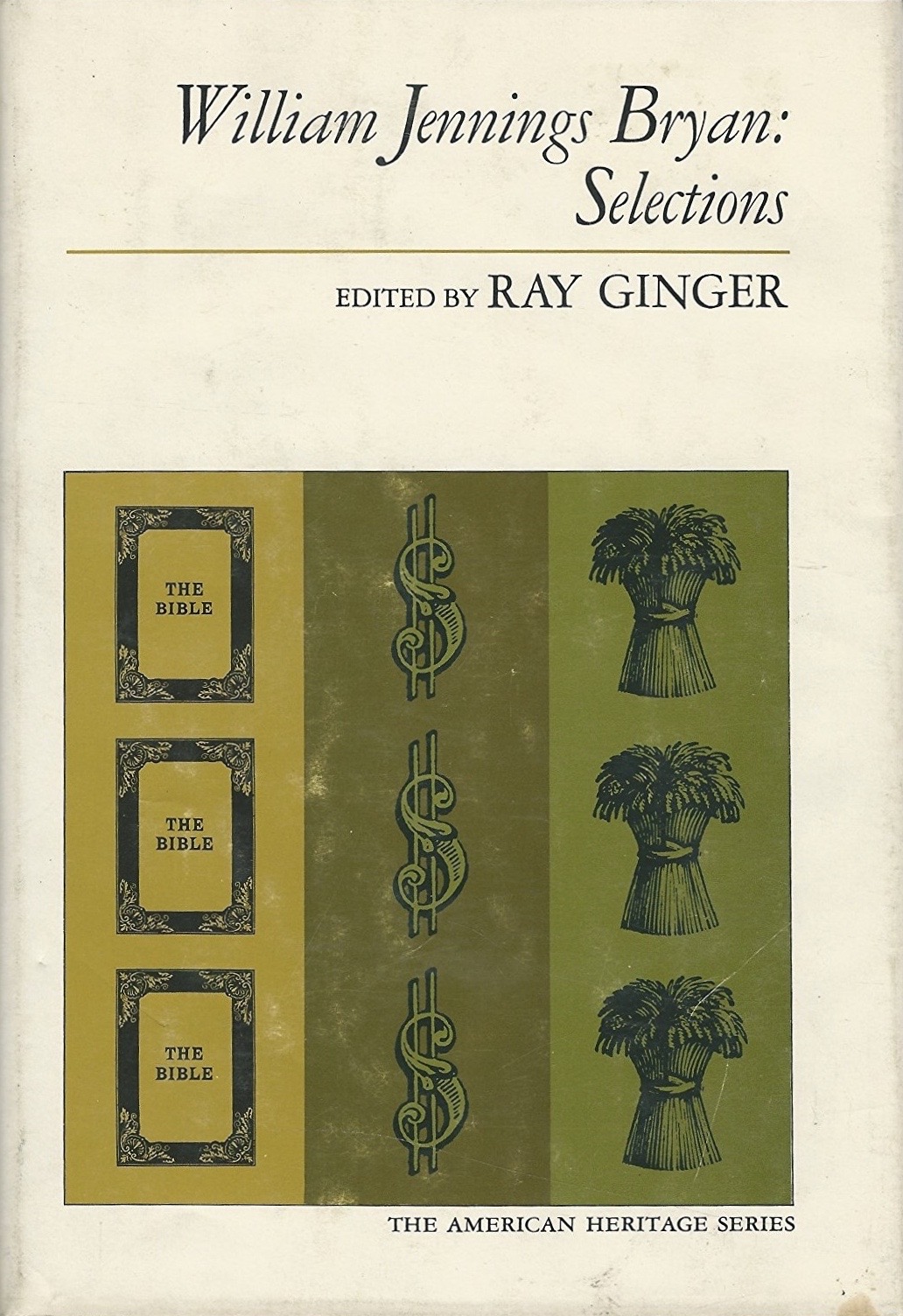
William Jennings Bryan
Selections
1967

The Progressives
1967
Negro Protest Thought in the Twentieth Century.
1965
American Catholic Thought on Social Questions
1968

Nonviolence in America
A Documentary History
1966
Church and the City
1865-1910
1967
The American Writer and the Great Depression
1966

The Political Thought of Benjamin Franklin
1965
The Government and the Economy, 1783-1861
1967
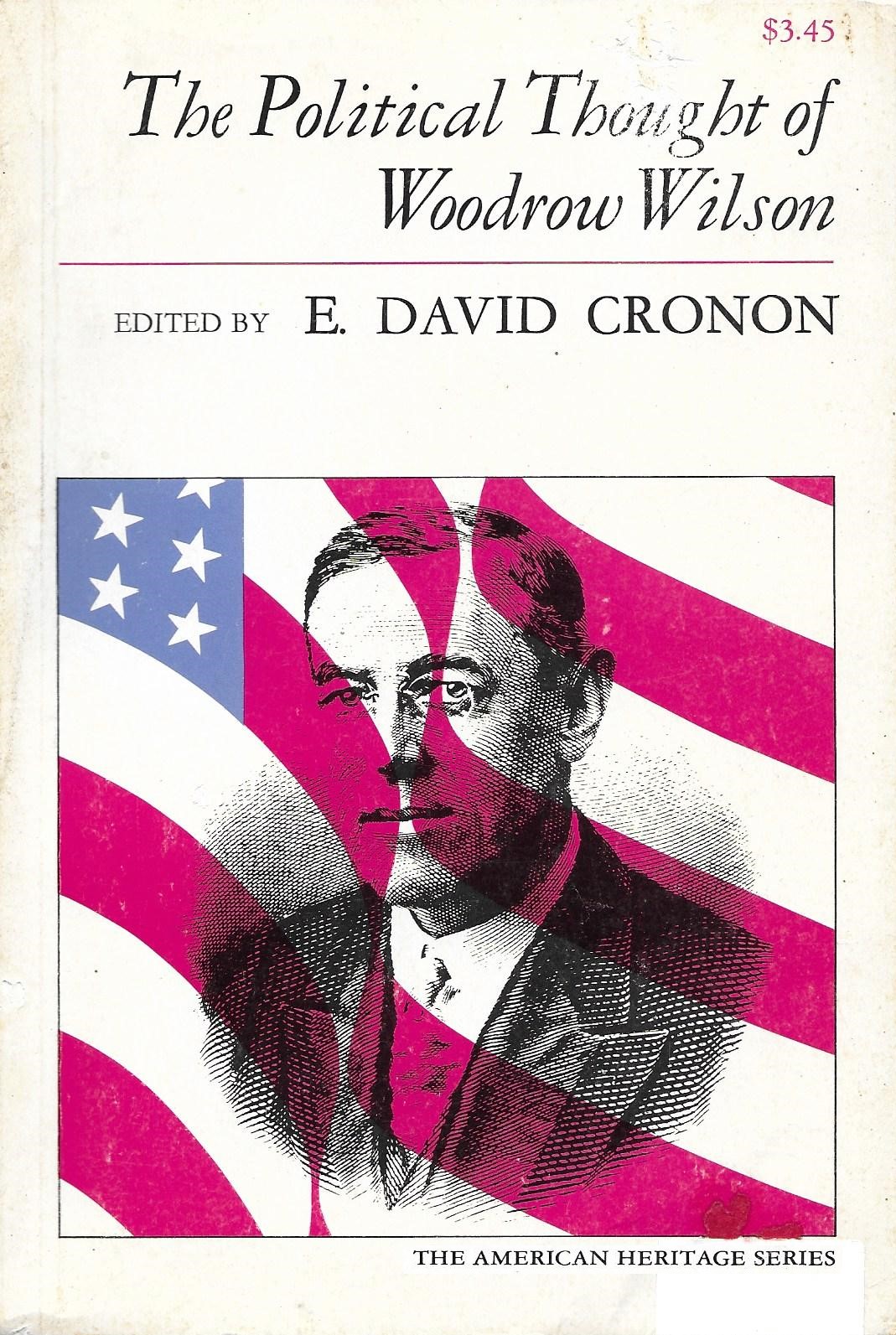
The Political Thought of Woodrow Wilson
1966

The Social Thought of Jane Addams
1965

New Deal Thought
1966
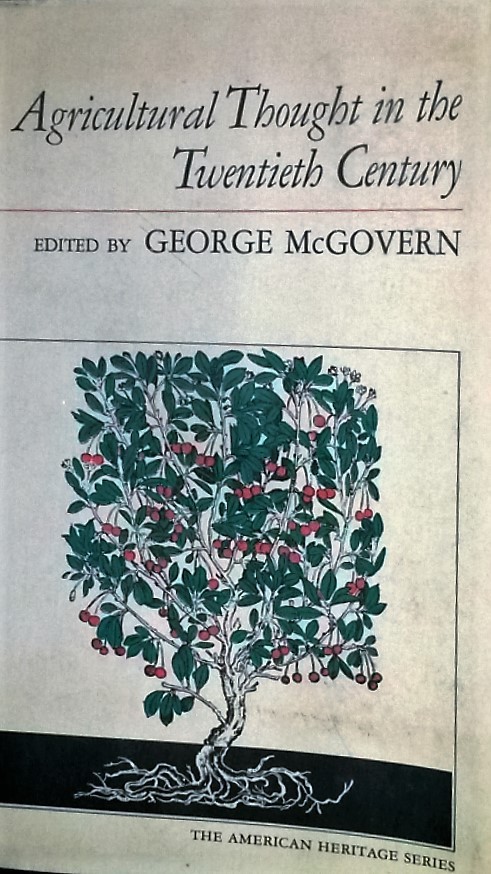
Agricultural Thought in the Twentieth Century
1967

The Supreme Court
Law and Discretion
1967
Freedom of the Press from Hamilton to the Warren Court
1967

American Military Thought
1966

The South Since Reconstruction
1973

American Labor
The Twentieth Century
1969

Immigration and the American tradition
1976

Did You Ever See a Dream Walking? American Conservative Thought in the Twentieth Century
1970

The Culture of the Twenties
1920-1929
1970

Contemporary American Protestant Thought
1900 1970
1973

Black Nationalism in America
1970

The Female Experience
An American Documentary
1977
Authors

William Frank Buckley, Jr. was an American author and conservative commentator. He founded the political magazine National Review in 1955, hosted 1,429 episodes of the television show Firing Line from 1966 until 1999, and was a nationally syndicated newspaper columnist. His writing style was famed for its erudition, wit, and use of uncommon words. Buckley was "arguably the most important public intellectual in the United States in the past half century," according to George H. Nash, a historian of the modern American conservative movement. "For an entire generation he was the preeminent voice of American conservatism and its first great ecumenical figure." Buckley's primary intellectual achievement was to fuse traditional American political conservatism with economic libertarianism and anti-communism, laying the groundwork for the modern American conservatism of US Presidential candidate Barry Goldwater and US President Ronald Reagan. Buckley came on the public scene with his critical book God and Man at Yale (1951); among over fifty further books on writing, speaking, history, politics and sailing, were a series of novels featuring CIA agent Blackford Oakes. Buckley referred to himself "on and off" as either libertarian or conservative. He resided in New York City and Stamford, Connecticut, and often signed his name as "WFB." He was a practicing Catholic, regularly attending the traditional Latin Mass in Connecticut.

Gerda Lerner was a historian, author and teacher. She was a professor emeritus of history at the University of Wisconsin–Madison and a visiting scholar at Duke University. Lerner was one of the founders of the field of women's history, and was a former president of the Organization of American Historians. She played a key role in the development of women's history curricula. She taught what is considered to be the first women's history course in the world at the New School for Social Research in 1963. She was also involved in the development of similar programs at Long Island University (1965–1967), at Sarah Lawrence College from 1968 to 1979 (where she established the nation's first Women's History graduate program), at Columbia University (where she was a co-founder of the Seminar on Women), and from 1980 until her retirement as Robinson Edwards Professor of History at the University of Wisconsin, Madison. (from Wikipedia)
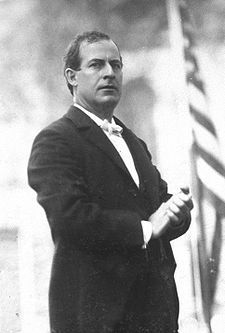
William Jennings Bryan was the Democratic Party nominee for President of the United States in 1896, 1900 and 1908, a lawyer, and the 41st United States Secretary of State under President Woodrow Wilson. One of the most popular speakers in American history, he was noted for a deep, commanding voice. Bryan was a devout Presbyterian, a supporter of popular democracy, a critic of banks and railroads, a leader of the silverite movement in the 1890s, a leading figure in the Democratic Party, a peace advocate, a prohibitionist, an opponent of Darwinism, and one of the most prominent leaders of populism in the late 19th - and early 20th century. Because of his faith in the goodness and rightness of the common people, he was called "The Great Commoner." In the intensely fought 1896 and 1900 elections, he was defeated by William McKinley but retained control of the Democratic Party. For presidential candidates, Bryan invented the national stumping tour. In his three presidential bids, he promoted Free Silver in 1896, anti-imperialism in 1900, and trust-busting in 1908, calling on Democrats, in cases where corporations are protected, to abandon states' rights, to fight the trusts and big banks, and embrace populist ideas. President Woodrow Wilson appointed him Secretary of State in 1913, but Wilson's handling of the Lusitania crisis in 1915 caused Bryan to resign in protest. He was a strong supporter of Prohibition in the 1920s, and energetically attacked Darwinism and evolution, most famously at the Scopes Trial in 1925. Five days after winning the case but getting bad press, he died in his sleep.
Leonard Williams Levy was the Andrew W. Mellon All-Claremont Professor of Humanities and Chairman of the Graduate Faculty of History at Claremont Graduate School, California. He was educated at Columbia University, where his mentor for the Ph.D. degree was Henry Steele Commager. Levy's most honored book was his 1968 study Origins of the Fifth Amendment, focusing on the history of the privilege against self-incrimination. This book was awarded the 1969 Pulitzer Prize for History. He wrote almost forty other books. In 1990, Levy was appointed a Distinguished Scholar in Residence; Adjunct Professor of History and Political Science at Southern Oregon State College in Ashland, Oregon.
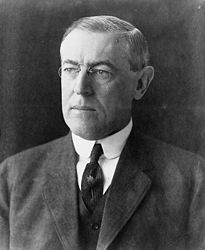
Thomas Woodrow Wilson (1856-1924) was the twenty-eighth President of the United States. A devout Presbyterian and leading intellectual of the Progressive Era, he served as President of Princeton University and then became the Governor of New Jersey in 1910. With Theodore Roosevelt and William Howard Taft dividing the Republican Party vote, Wilson was elected President as a Democrat in 1912. He proved highly successful in leading a Democratic Congress to pass major legislation that included the Federal Trade Commission, the Clayton Antitrust Act, the Underwood Tariff, the Federal Farm Loan Act and most notably the Federal Reserve System. Wilson was a proponent of segregation during his presidency. Narrowly re-elected in 1916, his second term centered on World War I. He tried to maintain U.S. neutrality, but when the German Empire began unrestricted submarine warfare he wrote several admonishing notes to Germany, and eventually asked Congress to declare war on the Central Powers. He focused on diplomacy and financial considerations, leaving the waging of the war primarily in the hands of the military establishment. On the home front he began the first effective draft in 1917, raised billions through Liberty loans, imposed an income tax, set up the War Industries Board, promoted labor union growth, supervised agriculture and food production through the Lever Act, took over control of the railroads, and suppressed anti-war movements. He paid surprisingly little attention to military affairs, but provided the funding and food supplies that helped the Americans in the war and hastened Allied victory in 1918. In the late stages of the war he took personal control of negotiations with Germany, especially with the Fourteen Points and the armistice. He went to Paris in 1919 to create the League of Nations and shape the Treaty of Versailles, with special attention on creating new nations out of defunct empires. Largely for his efforts to form the League, he was awarded the Nobel Peace Prize in 1919. Wilson collapsed with a debilitating stroke in 1919, as the home front saw massive strikes and race riots, and wartime prosperity turn into postwar depression. He refused to compromise with the Republicans who controlled Congress after 1918, effectively destroying any chance for ratification of the Versailles Treaty. The League of Nations was established anyway, but the U.S. never joined. Wilson's idealistic internationalism, calling for the U.S. to enter the world arena to fight for democracy, progressiveness, and liberalism, has been a highly controversial position in American foreign policy, serving as a model for "idealists" to emulate or "realists" to reject for the following century.

The son of renowned sociologists Robert Staughton Lynd and Helen Lynd, Staughton Lynd grew up in New York City. He earned a BA from Harvard, an MA and PhD in history from Columbia. He taught at Spelman College in Georgia (where he was acquainted with Howard Zinn) and Yale University. In 1964, Lynd served as director of Freedom Schools in the Mississippi Summer Project. An opponent of the Vietnam War, Lynd chaired the first march against the war in Washington DC in 1965 and, along with Tom Hayden and Herbert Aptheker, went on a controversial trip to Hanoi in December 1965 that cost him his position at Yale. In the late 1960s Lynd moved to Chicago, where he was involved in community organizing. An oral history project of the working class undertaken with his wife inspired Lynd to earn a JD from the University of Chicago in 1976. After graduating the Lynds moved to Ohio, where Staughton worked as an attorney and activist.

American social reformer and pacifist Jane Addams in 1889 founded Hull house, a care and education center for the poor of Chicago, and in 1931 shared the Nobel Prize for peace. Her mother died when she was two years old in 1862, and her father and later a stepmother reared her. She graduated from Rockford female seminary in 1881, among the first students to take a course of study equivalent to that of men at other institutions. Her father, whom she admired tremendously, died in that same year, 1881. Jane Addams attended medical college of woman in Pennsylvania but, probably due to her ill health and chronic back pain, left. She toured Europe from 1883 to 1885 and then lived in Baltimore until 1887 but figure out not what she wanted with her education and skills. In 1888, on a visit to England with her Rockford classmate Ellen Gates Starr, Jane Addams visited Toynbee Settlement Hall and London's East End. Jane Addams and Ellen Starr planned to start an American equivalent of that settlement house. After their return they chose Hull mansion, a building which had, though originally built at the edge of the city, become surrounded by an immigrant neighborhood and had been used as a warehouse. Using an experimental model of reform—trying solutions to see what would work—and committed to full- and part-time residents to keep in touch with the neighborhood's real needs, Jane Addams built Hull-House into an institution known worldwide. Addams wrote articles, lectured widely and did most of the fund-raising personally and served on many social work, social welfare and settlement house boards and commissions. Jane Addams also became involved in wider efforts for social reform, including housing and sanitation issues, factory inspection, rights of immigrants, women and children, pacifism and the 8-hour day. She served as a Vice President of the National Woman Suffrage Association from 1911-1914. In 1912, Jane Addams campaigned for the Progressive Party and its presidential candidate, Teddy Roosevelt. She worked with the Peace Party, helped found and served as president (1919-1935) of the Women's International League for Peace and Freedom and was a founding member of the American Civil Liberties Union (ACLU). In 1931 Jane Addams was awarded the Nobel Peace Prize, shared with Nicholas Murray Butler, but her health was too fragile to attend the European ceremonies to accept the prize. She was the second woman to be awarded that honor. By Jone Johnson Lewis, About.com

